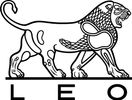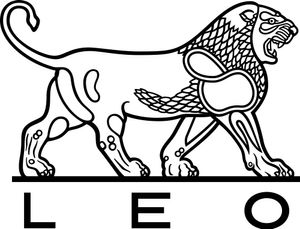LEO Pharma to present new data in moderate-to-severe atopic dermatitis and chronic hand eczema at the 31st EADV Congress
BALLERUP, Denmark, August 25, 2022 – LEO Pharma A/S, a global leader in medical dermatology, will present new data and insights in moderate-to-severe atopic dermatitis and chronic hand eczema at the upcoming 31st European Academy of Dermatology and Venereology (EADV) Congress, September 7 – 10, 2022 in Milan.
Data presentations will share findings into Adtralza® (tralokinumab) for the treatment of moderate-to-severe atopic dermatitis in adults and adolescents (aged 12-17) and delgocitinib cream, an investigational topical pan-Janus kinase (JAK)-inhibitor for the potential treatment of adult patients with moderate-to-severe chronic hand eczema (CHE). Adtralza is not approved for use in adolescents aged 12 to 17 years.
Additionally, LEO Pharma will present two symposia pertaining to atopic dermatitis and chronic hand eczema.
“We look forward to sharing our latest findings and amplifying expert perspectives in moderate-to-severe atopic dermatitis and chronic hand eczema,” said Jörg Möller, Executive Vice President, Global Research and Development, LEO Pharma A/S. “We remain committed to advancing the standard of care for eczema patients and their families.”
The company’s full roster of accepted presentations and symposia at the 31st EADV Congress includes:
Adtralza® (tralokinumab)
- 3 years of tralokinumab treatment provides long-term disease control as demonstrated by clinically meaningful outcomes in moderate-to-severe atopic dermatitis
Author: Richard B. Warren
Abstract #: 2299
E-Poster Presentation
- Tralokinumab demonstrated a consistent safety profile with up to 42-months of treatment in moderate-to-severe atopic dermatitis: including adverse events of special interest
Author: Kristian Reich
Abstract #: 2307
Oral Presentation
Thursday, September 8, from 14.15 – 15.45 CET
- Safety of tralokinumab in paediatric patients aged 12-17 with moderate-to-severe atopic dermatitis: results from the phase 3 ECZTRA 6 trial
Author: Andreas Wollenberg
Abstract #: 896
Oral Presentation
Thursday, September 8, from 10.15 – 11.45 CET
Delgocitinib
- Time to treatment response in clinical and patient-reported outcome measures from 16-week trial with delgocitinib cream 20 mg/g in patients with chronic hand eczema (CHE)
Author: Tove Agner
Abstract #: 0195
E-Poster Presentation
- Patient-reported itch and pain are correlated with clinician assessed outcomes in chronic hand eczema (CHE)
Author: Margitta Worm
Abstract #: 0194
E-Poster Presentation
Symposia
- Changing the future for chronic hand eczema patients: Is it in our hands?
Thursday, September 8 from 18.00 – 19.30 CET in theAmber Room 1-2
- Long-term perspectives in atopic dermatitis
Friday, September 9 from 13.00 – 14.00 CET in theAmber Room 1-2
- - - - -
About atopic dermatitis
Atopic dermatitis is a chronic, inflammatory skin disease characterized by intense itch and eczematous lesions.8 Atopic dermatitis is the result of skin barrier dysfunction and immune dysregulation, leading to chronic inflammation.9 Type 2 cytokines, including IL-13, play an important role in atopic dermatitis pathophysiology.10
About chronic hand eczema
CHE is defined as hand eczema (HE) that lasts for more than three months or relapses twice or more within a year.11,12 HE is the most common skin disorder of the hands13 that affects an estimated 1 – 5% of the general population14 with a one-year prevalence rate of approximately 9%.15 It is an inflammatory, non-infectious skin disorder of the hands and wrists11,16 and can cause itching, blisters, swelling and pain so severe that it can impair the ability to work.11,13,17 In a substantial number of patients, HE can develop into a chronic condition.13
About Adtralza® (tralokinumab)
Adtralza® (tralokinumab) is a high-affinity human monoclonal antibody developed to bind to and inhibit the interleukin (IL)-13 cytokine6, which plays a role in the immune and inflammatory processes underlying atopic dermatitis signs and symptoms.7,10 Adtralza specifically binds to the IL-13 cytokine, thereby inhibiting interaction with the IL-13 receptor α1 and α2 subunits (IL-13Rα1 and IL-13Rα2).6,10
Adtralza is approved for the treatment of adults with moderate-to-severe AD in the EU, Great Britain, Canada, the United Arab Emirates, and Switzerland.7 It also is approved in the U.S. under the tradename AdbryTM (tralokinumab-ldrm).
About delgocitinib
Delgocitinib is an investigational topical pan-Janus kinase (JAK)-inhibitor that inhibits activation of the JAK-STAT pathway, which plays a key role in the immune system in driving the pathophysiology of chronic inflammatory skin diseases.18,19 LEO Pharma is currently developing delgocitinib in a cream formulation for the treatment of moderate-to-severe chronic hand eczema (CHE) in adult patients. The cream formulation of delgocitinib is an investigational therapy under clinical development and has not been approved by any regulatory authority.
In 2014, LEO Pharma A/S and Japan Tobacco Inc. (JT) entered into a license agreement in which LEO Pharma gained exclusive rights to develop and commercialize delgocitinib for topical use in dermatological indications worldwide, excluding Japan, where JT retains rights.
References
- Warren R, et al. 3 years of tralokinumab treatment provides long-term disease control as demonstrated by clinically meaningful outcomes in moderate-to-severe atopic dermatitis. Presented at European Academy of Dermatology and Venereology (EADV) 2022 Annual Meeting, Milan, Italy, September 7-10, 2022. Poster Presentation #P0333.
- Reich K, et al. Tralokinumab demonstrated a consistent safety profile with up to 42 months of treatment in moderate-to-severe atopic dermatitis: including adverse events of special interest. Presented at 31st EADV Congress, Milan, Italy, September 7-10, 2022. Oral Presentation #FC03.
- Wollenberg A, et al. Safety of tralokinumab in paediatric patients aged 12-17 with moderate-to-severe atopic dermatitis: results from the phase 3 ECZTRA 6 trial. Presented at European Academy of Dermatology and Venereology (EADV) 2022 Annual Meeting, Milan, Italy, September 7-10, 2022. Oral Presentation #FC02.
- Worm M, et al. Time to treatment response in clinical and patient-reported outcome measures from 16-week trial with delgocitinib cream 20 mg/g in patients with chronic hand eczema (CHE). Presented at European Academy of Dermatology and Venereology (EADV) 2022 Annual Meeting, Milan, Italy, September 7-10, 2022. Poster Presentation #P0195.
- Agner T, et al. Patient-reported itch and pain correlated with clinician-assessed outcomes in chronic hand eczema (CHE). Presented at European Academy of Dermatology and Venereology (EADV) 2022 Annual Meeting, Milan, Italy, September 7-10, 2022. Poster Presentation #P0194.
- Popovic B, et al.Structural characterisation reveals mechanism of IL-13-neutralising monoclonal antibody tralokinumab as inhibition of binding to IL-13Rα1 and IL-13Rα2. J Mol Biol. 2017; 429:208–19.
- Adtralza® (tralokinumab) EU Product Information. LEO Pharma; June 2021.
- Weidinger S, et al. Atopic dermatitis. Lancet. 2016;387:1109-1122.
- Boguniewicz M, et al. Atopic dermatitis: a disease of altered skin barrier and immune dysregulation. Immunol Rev 2011;242(1):233-46.
- Bieber T. Interleukin-13: targeting an underestimated cytokine in atopic dermatitis. Allergy. 2020; 75:54-62.
- Lynde C, et al. Canadian Hand Dermatitis Management Guidelines. J Cutan Med Surg. 2010;14:267–84.
- Diepgen TL, et al. Guidelines for diagnosis, prevention and treatment of hand eczema. J Dtsch Dermatol Ges. 2015 Jan;13(1):e1–22. doi: 10.1111/ddg.12510_1.
- Bissonnette R, et al. Redefining treatment options in chronic hand eczema (CHE). JEADV. 2010;24;1–20.
- Christoffers WA, et al. Interventions for hand eczema. Cochrane Database Syst Rev. 2019;4:CD004055.
- Thyssen, et al. The epidemiology of hand eczema in the general population – prevalence and main findings. Contact Dermatitis. 2010;62:75-87.
- Menné T, et al. Hand eczema guidelines based on the Danish guidelines for the diagnosis and treatment of hand eczema. Contact Dermatitis. 2011;65:3–12.
- Politiek K, et al. Systematic review of cost-of-illness studies in hand eczema. Contact Dermatitis. 2016;75:67–76.
- Damsky W, et al. JAK inhibitors in dermatology: The promise of a new drug class. Journal of American Academy of Dermatology (JAAD); 2017;76(4):736-744.
- Virtanen AT, et al. Selective JAKinhibs: Prospects in Inflammatory and Autoimmune Diseases. BioDrugs. 2019;33:15–32.
Contacts
Contact:
David Patti
LEO Pharma, Global Product Communications
973.796.7706
DAPAI@leo-pharma.com
Jes Broe Frederiksen
LEO Pharma, Global Communications Manager
+45 53 60 59 48
JEBFE@leo-pharma.com
About LEO Pharma
About LEO Pharma
LEO Pharma is a global company dedicated to advancing the standard of care for the benefit of people with skin conditions, their families and society. Founded in 1908 and majority owned by the LEO Foundation, LEO Pharma has devoted decades of research and development to advance the science of dermatology, and today, the company offers a wide range of therapies for all disease severities. LEO Pharma is headquartered in Denmark with a global team of 5,800 people, serving millions of patients across the world. In 2021, the company generated net sales of DKK 9,957 million.
Subscribe to releases from LEO Pharma
Subscribe to all the latest releases from LEO Pharma by registering your e-mail address below. You can unsubscribe at any time.
Latest releases from LEO Pharma
LEO Pharma appoints Marika Murto to lead Global Product Strategy16.12.2025 09:00:00 CET | Pressemeddelelse
Marika Murto brings over 20 years of pharmaceutical expertise in product strategy, innovation, and business transformation Her appointment as SVP of Global Product Strategy will help unlock LEO Pharma’s portfolio potential, driving patient impact and supporting sustainable growth
LEO Pharma submits adolescent label expansion application for Anzupgo® to EMA15.12.2025 09:00:00 CET | Pressemeddelelse
LEO Pharma has submitted a label expansion application to EMA to expand Anzupgo® (delgocitinib) cream to adolescent patients (12–17 years) with moderate to severe chronic hand eczema (CHE) for whom topical corticosteroids are inadequate or inappropriate – the application has been accepted for review. The application is supported by results from DELTA TEEN, a phase 3 trial investigating efficacy and safety of Anzupgo® in adolescents with moderate to severe chronic hand eczema (CHE).1 The label expansion submission for adolescent patients demonstrates LEO Pharma's commitment to investigating use within relevant sub-populations where treatments can help make a fundamental difference for patients with skin diseases.
LEO Pharma Announces Positive Topline 32-Week Key Results in ADHAND Trial17.11.2025 09:00:00 CET | Pressemeddelelse
The ADHAND trial evaluates the efficacy and safety of tralokinumab in adult patients living with atopic dermatitis with moderate-to-severe hand involvement,1 a high burden, high unmet need population.2 At Week 16, tralokinumab showed statistically significant improvement compared to placebo in all primary and key secondary endpoints such as clear or almost clear skin, itch and pain.3 The 32-week results of the ADHAND trial builds on the positive findings observed at Week 16.
LEO Pharma delivers 8% revenue growth at CER in 9M 2025 and updates full-year outlook6.11.2025 09:00:00 CET | Pressemeddelelse
Ballerup, Denmark, 6 November, 2025 - In the first nine months of 2025, LEO Pharma continued its robust revenue growth, with significantly improved profitability and free cash flow. As expected, growth accelerated in the third quarter, with the global rollout of Anzupgo® gaining further momentum after its September launch in the U.S. The 2025 financial outlook is updated to reflect the addition of Spevigo® to the portfolio, reinforcing LEO Pharma’s commitment to advancing innovation and expanding access to care. Highlights LEO Pharma’s revenue increased by 7% to DKK 10,064 million, and by 8% at constant exchange rates (CER), entirely driven by organic growth. The revenue growth was led by North America (+27% at CER), with Europe (+2% at CER) and Rest of World (+6% at CER) also contributing to the overall growth. Revenue from the Dermatology portfolio grew by 9% (CER), driven by the Strategic brands Adtralza®/Adbry® and Anzupgo®, which combined had a revenue increase of 41% (CER), in ad
LEO Pharma announces NICE recommendation of reimbursement in England and Wales5.11.2025 12:00:00 CET | Pressemeddelelse
The National Institute for Health and Care Excellence (NICE) has recommended the first-and-only topical treatment for adults in the United Kingdom specifically approved for moderate to severe chronic hand eczema (CHE) for whom topical corticosteroids are inadequate or inappropriate.1 The Technology Appraisal Guidance (TAG) means NHS organisations in England and Wales must now make Anzupgo® ▼(delgocitinib) cream available for healthcare professionals to prescribe. CHE affects around 4.4 million2,3 adults in the UK, with 70% of those with severe forms reporting problems performing everyday activities4, and 58% saying it interferes with their ability to work5.
In our pressroom you can read all our latest releases, find our press contacts, images, documents and other relevant information about us.
Visit our pressroom
